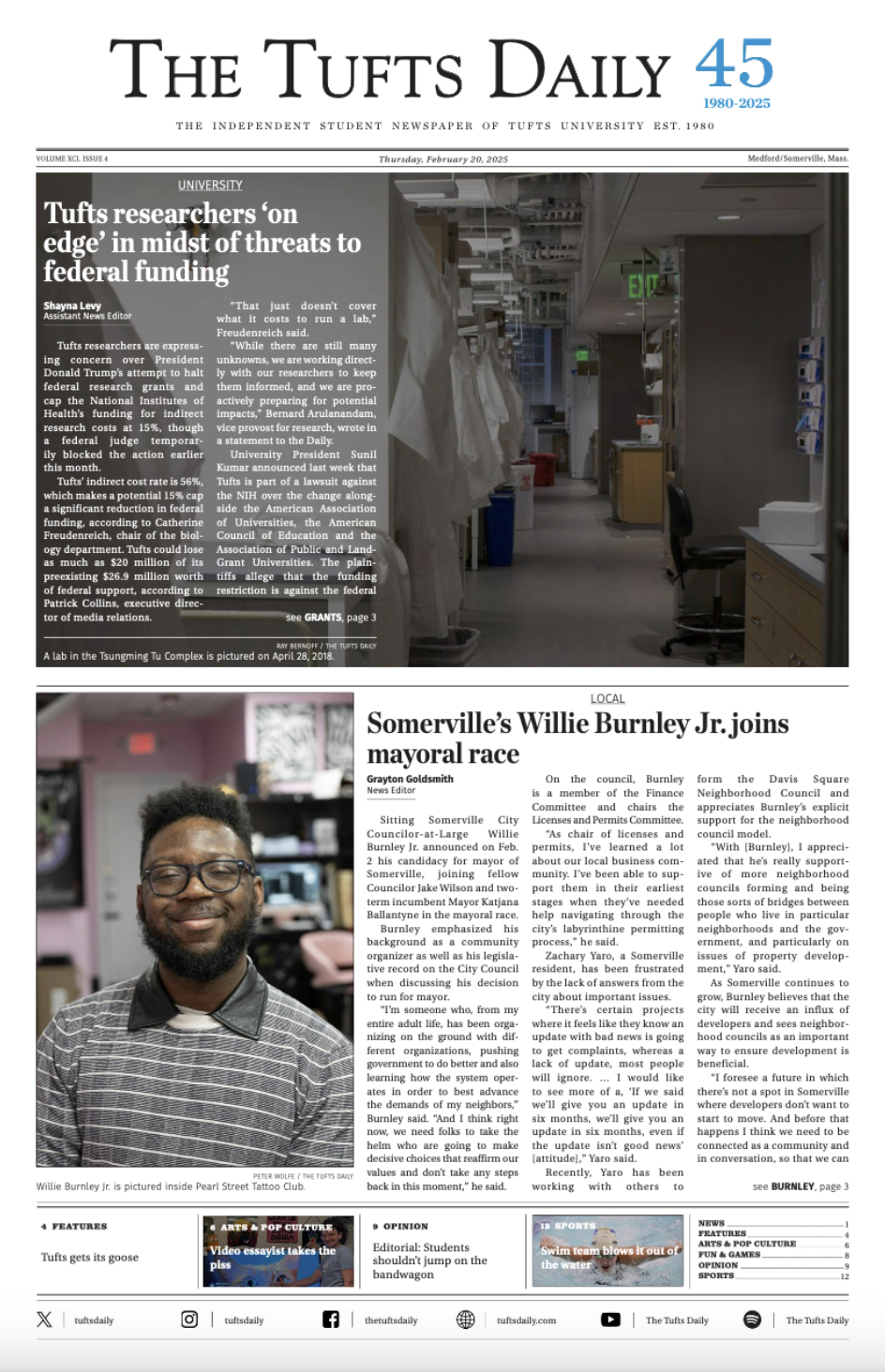There is no longer any need to bring soap and a towel to dorm bathrooms after the University installed over six hundred dispensers of Purell brand hand sanitizer in the bathrooms of the undergraduate dormitories over winter break.
Historically, students have been expected to tote their own hand towels to and from public dorm bathrooms, only some of which were equipped with towel racks.
Tufts Community Union (TCU) Senator junior Athena Bogis took on the paper towel problem for a University College Innovative Nonprofits class with Professor Molly Mead.
"What I had students do was identify a public problem they cared about," Mead said. "Then I had them think of what in their mind would be a really innovative, effective solution for that problem."
Mead's students then had to design a response to the problem they studied. Bogis identified the difficulty of hand washing in the dorms. "She raised it as an issue and did some needs assessment," Mead said.
"Is someone going to bring a hand towel with them every time they go to use a bathroom?" Bogis asked.
Bogis said she was one of many people on campus who worked to solve this problem. "I did contact administrators and make inquiries, but I wasn't the only one," she said. "I was part of a movement and part of a pressure on the administration."
Health Services Director Michelle Bowdler agreed with Bogis' concern. "The 'no paper towels' complaint has been a recurrent one for many years," she said.
Bowdler says that the newly-installed sanitizer dispensers are a more effective and environmentally sound solution than the paper towels that Tufts students and parents have traditionally asked for.
"Sanitizers are easier to use, and in the end, more hygienic," she said.
Sanitizers are becoming more popular on and off college campuses as a cheaper, environmentally friendlier and easier way of promoting hygiene than the traditional soap-and-paper towels installations.
The change is also timely, as the installation coincides with Tufts facing its first season attempting to control the spread of influenza (flu) across a crowded campus without the aid of flu shots.
Bogis said that when she spoke with Facilities Director Ron Esposito, he seemed optimistic about adding Purell to the bathrooms, and said he would discuss the issue with Health Services.
Bowdler said the public health threat of the flu is what pushed both the President's and Facilities offices to finally fund and install the long-discussed sanitizer arrangement.
According to Bowdler, the University usually orders and distributes about 2,000 flu shots to students and faculty each year. Due to this winter's national flu shot shortage, the University was informed in Oct. 2004 it would receive no part of its usual shipment. "That's why it's especially important that we got these sanitizers now," Bowdler said.
In addition to the installation, as part of a flu-prevention campaign Health Services distributed bottles of hand sanitizer to academic buildings at the beginning of flu season.
The Centers for Disease Control and Prevention (CDC) advocates the use of alcohol-based sanitizers for hospitals and health care centers because sanitizer cleans and dries more quickly than soap and towels, and it is less likely to cause skin irritations.
A 2004 Harvard Medical School study found that families that used hand sanitizer gel experienced a 59 percent reduction in gastrointestinal illness as compared with families that relied on soap alone.





